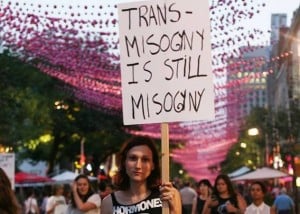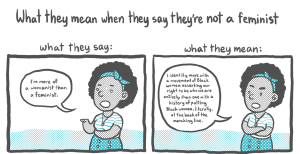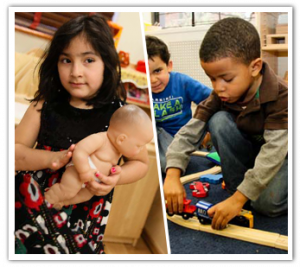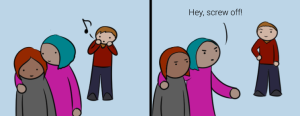Editor’s Note: While this article provides useful help in repairing broken relationships, we want to be clear that there is no shame in cutting toxicity out of your life. If you feel that your relationship with your mother is too damaging to attempt these steps, that’s okay.

Source: Getty Images
A recent article has surfaced that discusses the mother-daughter relationship between Alice Walker and her daughter, Rebecca Walker.
Rumors of their poor relationship have been around for quite some time now, but it appears that daughter Walker is once and for all addressing the problem publicly. In the confession, younger Walker even blames feminism for her mother’s poor parenting decisions.
Although I think it is far-reaching to blame feminism (as a theory and activist practice) for one’s parenting choices, I think that the article brings up an important discussion about the significance of mother-daughter relationships.
In the Rebecca Walker’s writing, one can almost feel her pain in the words.
There is something sacred about mother-daughter relationships that leave many women feeling empty and less whole when a mother is absent from their life.
Broken mother-daughter relationships are more common than most are aware.
Studies suggest that nearly 30% of women have been estranged from their mothers at some point in their life (see The Unhappy Mother’s Day).
Frequently, I come in contact with women who have struggled with low self-esteem, dating and relationship problems, and feelings of worthlessness and depression related to emotionally abusive or absent mothers.
In U.S. culture, the importance of the “father-child” bond is a common narrative throughout mass media, pop psychology, and the mental health field.
There is even a word for it in popular culture – daddy issues – the term used to refer to a woman who is having a difficult time functioning in dating relationships, due to the residual effects of a bad relationship with her father.
An issue that is rarely discussed openly in mainstream culture, which makes those affected feel even more abnormal, is the issue of poor mother-daughter relationships.
Maybe poor mother-daughter relationships are less discussed and appears or feels to be more “dysfunctional,” because it is believed that women are more nurturing, empathetic, and social than boys and men, which should prevent any serious conflict between mothers and their female children.
Hence the popularity of stepmother and mother-in-law conflict in storylines.
This article here even suggests that stepmothering is more difficult than parenting as a stepfather.
Rarely do we come across news articles of biological mother-child conflict.
And because a strained relationship between a mother and daughter appears to be outside of the norm, when there is animus or emotional disconnect between a mother and an adult female child, it may actually cause more emotional distress (i.e., anger, frustration, shame, and hurt) than traditional parent-child conflict.
Individuals affected by a strained or emotionally absent mother-daughter relationship may try to hide their feelings from others, which only leads to more feelings of shame and loneliness.
So, where do daughters begin to repair poor relationships with their mothers? Why is it important to foster positive relationships between daughters and mothers?
Below, I provide tips on how to repair a broken or strained relationship between adult daughters and their mothers, which serves to preserve or improve the emotional health of the individual, the entire family, and female bonds.
Although here I focus on encouraging daughters to initiate healing conversations with their mothers, mothers and other caregivers will find the suggested steps useful as well.
Step 1: Set Up the Meeting
Schedule in advance a time and date to meet. Inform your mother in advance what the meeting will be about. Decide if it will take place in a private place, like your living room, or in a public place, such as a coffee shop. Weigh the pros and cons of a public versus private meet-up.
Also, you should know in advance what it is you want to say to your mother and the message you would like to convey.
Only involve the two individuals involved and primarily responsible for any past disagreements and repairing the relationship. The point is to avoid family members from siding with or teaming up against mother or daughter.
Of course, after the initial reconciliation talk, other family members can come together and discuss the renewal of the relationship or how to help support the relationship.
Step 2: Have the Conversation
Begin the conversation by thanking your mother for agreeing to join you in the conversation. Inform her that the meeting is very important to you.
Then, begin the conversation with identifying the positive aspects of the relationship. If there is no relationship at all at this point, you can simply begin by pointing out positive characteristics of your mother or positive events or behaviors in her past.
Most importantly, instead of beginning the conversation with who or what caused the problem, begin with pointing strengths about the person or the relationship. Be specific about the behavior or characteristic that you feel attracts you (or others) to your mother, makes you appreciate and value her as a human being, and makes you want to be near her more often.
Mother and daughter both should be given the opportunity to identify strengths about the individual or relationship before moving on to discuss the undesirable aspects of the relationship.
Sometimes it is difficult to identify strengths, especially when someone has been in pain for a long time. However, it is very important to let your mother know that she is not a bad person in your eyes.
In fact, there are things about her that actually draw you to her and those characteristics must be your focus, for no one wants to be criticized by someone they love.
Step 2a: “OPEN” Up My Heart, My Mouth, and My Ears
To make this step easier, I have derived the acronym: OPEN. Think of this step in the healing talk as “OPEN” up my heart, my mouth, and my ears.
(O)wn
It is important during the initial dialogue that you own up to your part of the discord.
Explain to your mother what mistakes you have made in the past and how you may have contributed to the negative dynamics of the relationship.
(P)inpoint
In this stage of the discussion, pinpoint specifically the action or event that caused you to withdraw from the relationship or lose trust in your parent.
In other words, be specific in naming exactly what behavior or set of behaviors hurt you.
Sometimes individuals in families are vague in stating the true problem; therefore, it is difficult to avoid correcting the problem. Consequently, the unwanted behavior is never changed.
(E)go
For me, this is the most important step in any meaningful discussion.
Simply stated, suspend your ego.
Now is not the time to be concerned with winning an argument.
Even more important, do not worry about being embarrassed or appearing emotionally weak. The goal is not to win an argument or to save face, but to amend a very important relationship.
(N)ext
Where do you want to go from here?
Before closing this part of the discussion, explicitly state where you want the relationship to go next.
In other words, what do you hope to accomplish from the discussion or what do you expect now from you, your mother, and the mother-daughter relationship?
Step 3: Move Forward
Move forward from the conflict and toward healing.
I suggest that mother and daughter plan time to spend together alone.
It is best to start out with a short time period together, like at lunch, dinner, theater performance, or a movie. This time should be spent without siblings, partners, or children.
I have found that when two people spend quality time together without responsibility to each other, they are actually more likely to enjoy each other’s company.
After a few short periods of time together, then mother and daughter can work on spending longer time together, like at overnight events or family vacations.
***
In my opinion, mother-daughter relationships are sacred and worth preserving.
We live in a patriarchal society, where often the child-father relationship is given more attention and revered.
Consequently, when a mother-child relationship is damaged, adult children tend to cover-up and internalize the lost and take it more personally. They begin to view themselves as damaged, un-nurturing, or unworthy of love and attention.
Yet, mothers and daughters are human beings too; thus, we are necessarily flawed.
[do_widget id=’text-101′]
Dr. Venus E. Evans-Winters is an Associate Professor of Education and Faculty Affiliate of Women and Gender Studies. Her interests are school resilience, urban education reform and policy, critical race theory, and feminism(s). She is the author of Teaching Black Girls: Resiliency in Urban Classrooms as well as several scholarly articles and book chapters. Follow her on Twitter @ileducprof and #BlackEdu.
Search our 3000+ articles!
Read our articles about:
Our online racial justice training
Used by hundreds of universities, non-profits, and businesses.
Click to learn more




















